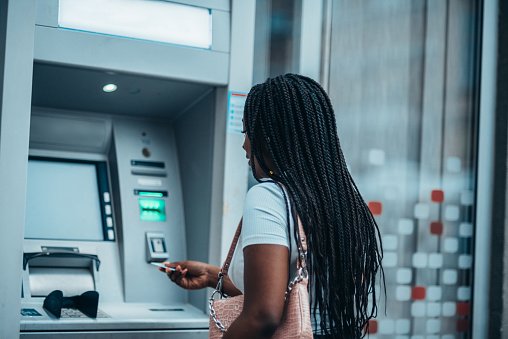Introduction.
Saving money can feel challenging, especially when you’re juggling expenses, responsibilities, and unexpected bills.
But saving isn’t just about cutting back on spending—it’s about creating a life where your money works for you.
In Nigeria, where costs can vary greatly and unexpected expenses pop up frequently, knowing how to manage and save money is a game-changer.
This guide is packed with practical tips tailored to the Nigerian experience.
From leveraging discounts to managing your bills and exploring side hustles, there’s something for everyone.
So, let’s dive right into it!
1. Track Your Expenses
The first step to saving money is knowing where it’s going. Use an app, a spreadsheet, or even a notebook to track every naira you spend. This gives you a clear picture of your spending habits and shows areas where you can cut back.
2. Create a Budget
A budget isn’t just for big organizations; it’s a tool to keep your finances in check. Break your income into categories like rent, food, transport, and savings. Stick to it, and adjust as needed.
3. Set Clear Goals
Want to buy a car? Planning a vacation? Whatever your goals, write them down and give yourself a timeline. This will keep you motivated and focused.
4. Open a Savings Account
Keeping your savings separate from your spending money helps avoid the temptation to dip into it. Many Nigerian banks offer savings accounts with good interest rates.
5. Embrace Cashless Transactions
Paying with mobile apps or cards not only makes transactions seamless but also helps you keep track of your expenses. Apps like Paga, PalmPay, and Kuda offer great services for tracking spending.
6. Automate Your Savings
Set up an automatic transfer to your savings account whenever you receive your income. Start small and increase as you go.
7. Avoid Impulse Buying
Think twice before making unplanned purchases. Ask yourself if you really need the item or if it’s just a want.
8. Use Discounts and Coupons
Take advantage of sales, discounts, and loyalty programs. Apps like JumiaPay or Konga often have deals on essential goods.
9. Cut Down on Eating Out
Eating out can be expensive. Cook your meals at home more often—it’s healthier and cheaper.
10. Buy in Bulk
Wholesale markets like Mile 12 in Lagos or Wuse Market in Abuja offer cheaper rates for bulk purchases. This works great for non-perishables and household goods.
11. Reduce Utility Costs
Turn off lights, unplug electronics when not in use, and fix leaking taps. Small changes can make a big difference in your bills.
12. Carpool or Use Public Transport
If you spend a lot on transportation, consider carpooling or taking public buses to cut costs.
13. Invest in Affordable Alternatives
Consider used items or affordable brands that offer good quality. This applies to gadgets, clothing, and even furniture.
14. Leverage Technology
Use budgeting apps like Money Manager or expense trackers that are popular in Nigeria to stay on top of your finances.
15. Avoid Debts
Avoid loans with high interest rates unless necessary. Pay off existing debts as soon as you can.
16. Learn a Skill
Acquiring new skills can help you start a side hustle or improve your current income. Platforms like Udemy and Coursera have free courses to get started.
17. Sell Unused Items
Do you have items lying around that you no longer need? Sell them online through platforms like Jiji or Facebook Marketplace.
18. Start a Side Hustle
Side hustles like freelancing, blogging, or selling handmade items can provide extra income.
19. Plan for Big Purchases
Save up and plan for big expenses like electronics or furniture instead of relying on credit.
20. Avoid Get-Rich-Quick Schemes
Stay away from schemes that promise unrealistic returns. Focus on long-term investments instead.
21. Invest Wisely
Consider low-risk investments like mutual funds or treasury bills to grow your savings. Do thorough research or consult a financial advisor.
22. Emergency Fund
Build an emergency fund that covers at least three months’ worth of expenses. This protects you from dipping into savings for unforeseen circumstances.
23. Use Solar Energy
For those facing high electricity costs, investing in solar energy can save money in the long run.
24. DIY Repairs
Instead of hiring someone for minor repairs, learn to fix things yourself through online tutorials.
25. Negotiate Prices
In Nigeria, bargaining is almost an art form. Don’t shy away from negotiating for a better price.
26. Use Affordable Data Plans
Compare data plans from MTN, Glo, Airtel, and 9mobile to find the best deal.
27. Stay Healthy
Preventive health care is cheaper than treatment. Eat healthily, exercise, and go for regular check-ups.
28. Join Cooperative Societies
In many communities, cooperative societies help members save and access loans at lower interest rates.
29. Use Open Markets
For fresh food, visit open markets instead of supermarkets. The prices are usually much better.
30. Buy Generic Products
Generic medicines and non-branded items often work just as well and cost much less.
31. Save on Entertainment
Opt for free or low-cost entertainment options like local parks, public beaches, or community events.
32. Practice Delayed Gratification
Wait a few days before making non-essential purchases. You might realize you don’t need the item after all.
33. Teach Kids About Money
If you have kids, start teaching them about saving early. It’ll help them develop good habits for the future.
FAQs
How much should I save monthly?
Aim for at least 20% of your income if possible. Start small if this feels too high and increase gradually.
Is saving money in Nigeria realistic?
Yes! It requires planning and discipline, but with small, consistent efforts, anyone can save.
Are cooperative societies safe?
Most reputable ones are, but always do your research before joining.
Conclusion
Saving money in Nigeria might not always feel easy, but it’s achievable. By being intentional with your spending, cutting unnecessary costs, and exploring creative ways to save, you can build a solid financial foundation.
Which of these tips do you think will work best for you? Let me know!





GIPHY App Key not set. Please check settings